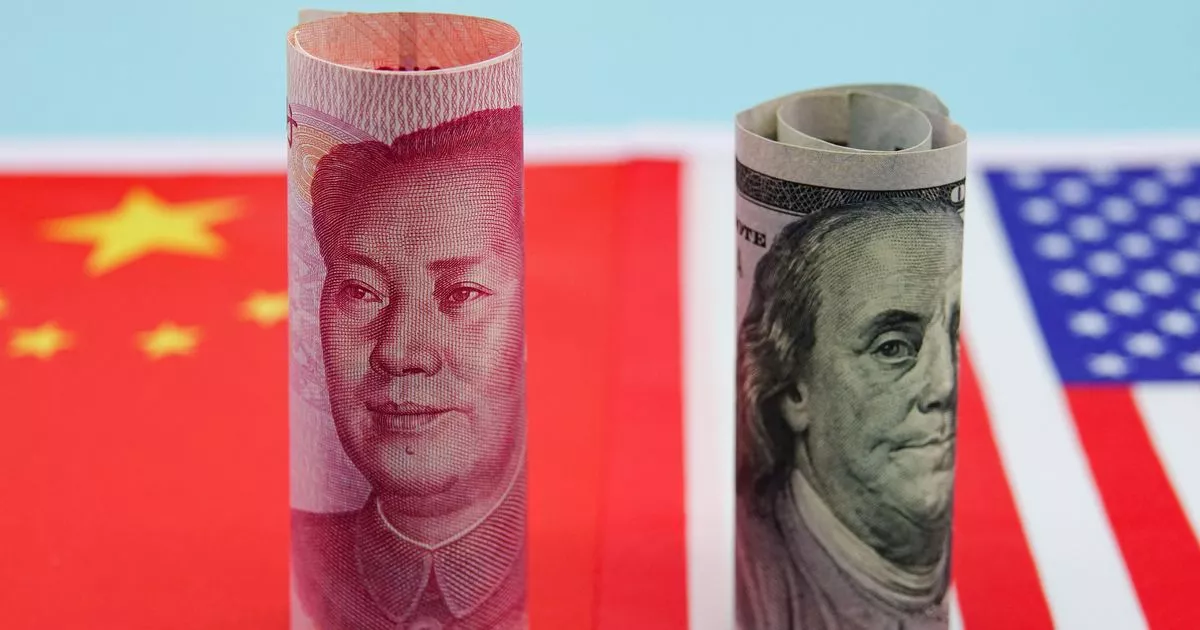
With China striving to build up its internal economy in order to reduce reliance on the dollar, some experts say this could lead to an eventual turnover of spending power
Experts suggest that Beijing is subtly working towards ‘de-throning’ the dollar, even though it’s not trying to make the yuan a global currency just yet – China is making moves to strengthen the yuan through local institutions and regional groups like the SCO.
Beijing aims to boost the use of the yuan in cross-border trade and investment, lessen its reliance on the dollar, reduce exchange risk and dollar liquidity shortage, and ensure access to global markets during geopolitical crises.
Despite rising tensions between the U.S. and China since 2018, no Chinese leaders have publicly stated an intention to compete with the dollar.
However, as these tensions continue, Chinese financial regulators and scholars have openly expressed worries about Beijing’s vulnerabilities and urged government officials to step up efforts to protect the financial system.
READ MORE: Elite consultants are charging parents £94,000 to get their kids into top US colleges
Fang Xinghai, the vice chairman of the China Securities Regulatory Commission, has warned that China needs to get ready for the chance of being cut off from the U.S. dollar-based global payment system.
This would be a kind of “forced financial decoupling” where Chinese groups wouldn’t be able to use the U.S. dollar or make international transactions with it – similar to what happened to the ruble in Russia after they attacked Ukraine, forcing other countries to enforce sanctions.
This warning comes as two U.S. senators have suggested a bill that would punish Chinese groups enforcing Beijing’s proposed national security law in Hong Kong. The law aims to crack down on protests against the government, and the bill would also penalize banks doing business with these groups.
Click here to follow the Mirror US on Google News to stay up to date with all the latest news, sports, and entertainment stories
President Xi Jinping, who has been in power since 2013, often talks about preparing for the worst to avoid any big risks that could slow down or stop China’s progress.
Xi believes that China’s state-owned financial institutions and businesses need to protect themselves against possible international sanctions if there’s a military conflict with the West over Taiwan.
This concern has become more urgent after seeing the West’s sanctions on Russian groups and individuals to punish President Vladimir Putin for his war against Ukraine.
The West’s decision to freeze Russian foreign exchange reserves has upset Chinese policy makers. Chinese economist Yu Yongding called this move “a blatant breach of…trust” and evidence of the United States’ “willingness to stop playing by the rules.”
Join the Mirror’s SMS news service to get the biggest breaking stories delivered straight to your phone. Click here to subscribe.
China’s efforts to reduce its reliance on the US dollar aren’t just led by the central government in Beijing. Local governments and financial institutions are also involved. One example is the Sino-Russian Financial Alliance.
In October 2015, China’s Harbin Bank and Russia’s Sberbank started the Sino-Russian Financial Alliance. This nonprofit organization aims to support trade between China and Russia, encourage financial cooperation, and promote the use of local currencies.
The alliance started with 35 members, including 18 Chinese financial institutions and 17 Russian ones. When the alliance was launched, Sun Yao, vice governor of Heilongjiang province, said that the alliance “is an important platform to facilitate the development of the China-Mongolia-Russia Economic Corridor.”






